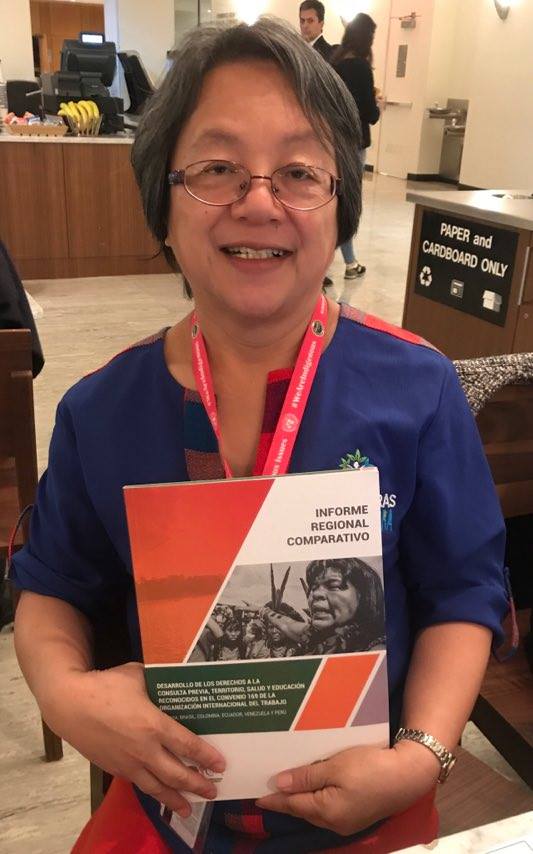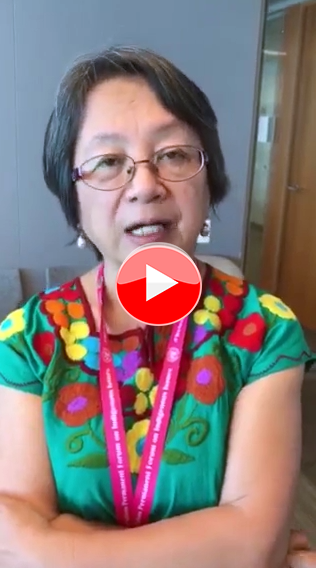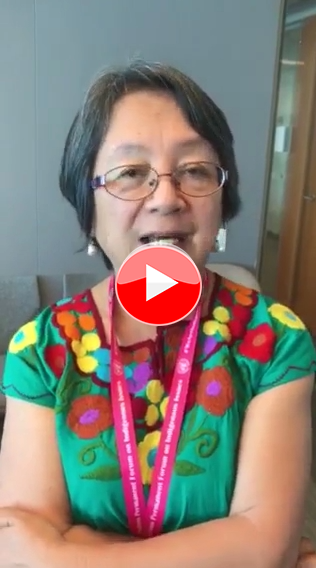• Special Rapporteur of the United Nations for the Rights of Indigenous Peoples recognized indigenous monitoring as a tool to raise awareness of the reality of indigenous people territories.
• She recognized that compliance reports on indigenous rights at the regional level, such as those investigated by COICA, reinforce early warning mechanisms and prevent the infringements of rights.
 Special Rapporteur receives the Regional Report of COICA
Special Rapporteur receives the Regional Report of COICA
New York, Friday May 5, 2017.- [DAR – special commissioner] In an exclusive interview with DAR, Victoria Tauli-Corpuz, UN Special Rapporteur on the Rights of Indigenous Peoples, identified indigenous surveillance as a tool that not only empowers indigenous communities to identify and publicize violations of their rights but also gives them the opportunity to influence their states and the international community to bring indigenous rights to the foreground.
“If indigenous people are able to implement those surveillance systems and enter information into databases which can then be accessed by the government, the international community, and the indigenous communities themselves, then this can really present a good picture of what is happening with indigenous peoples in their communities as well as at the national level”, said Tauli-Corpuz.
The Rapporteur, who is in the third year of her mandate, also stressed the importance of the information obtained as a result of surveillance and its potential to enrich reports of rights violations:
“That kind of information is also good when writing reports related to the Universal Periodic Review for a particular country; if you have information on how rights have been violated or respected then this will be very important input into the Universal Periodic Review, which is the review of treaty bodies, on how countries are handling or mishandling their international obligation” she added.
To coincide with this interview, another important publication on the situation of indigenous peoples was just released. The findings of government compliance reports of indigenous rights at the regional level, were summarized in a recent report developed by the Coordinator of Indigenous Organizations of the Amazon Basin – COICA, with the support of DAR. This report covers the situation of protection and vulnerability of indigenous rights in six Latin American countries: Bolivia, Brazil, Colombia, Ecuador, Venezuela and Peru.
About this report, the UN Special Rapporteur said: “It´s very important to have reports like this because they will show the picture of indigenous peoples across national boundaries, while also showing what could be the solutions to these problems, because in most cases the same actors are doing the same things to indigenous peoples across national boundaries so I think that it is important and COICA indeed should be writing these reports and presenting them to different relevant actors”.
Finally, she pointed out that these reports, as well as any early warning mechanisms, will lead to greater pressure from the international community, Special Rapporteurs, Treaty Bodies or IACHR to alert governments to violations and to request them to stop harassment and Criminalization of indigenous vigilantes.



